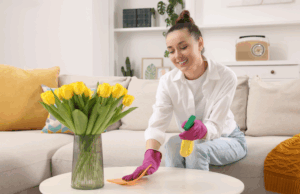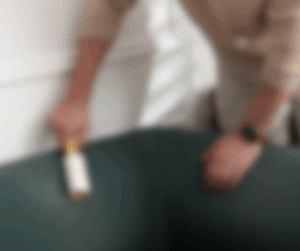Sponges are a common household item used for a variety of cleaning tasks in the kitchen, bathroom, and other areas of the home. While sponges are effective at removing dirt and grime, there are certain things you should avoid doing with a sponge to prevent contamination and maintain a clean and hygienic environment. Here are some things you may not have known you shouldn’t do with a sponge:
Don’t Use a Sponge for Too Long
Sponges are designed to be used for a limited time before they need to be replaced. Using a sponge for too long can cause bacteria to build up, which can then spread to other surfaces in your home. It’s recommended that you replace your sponge every 1-2 weeks, depending on how frequently you use it.
Don’t Use a Sponge on Hot Surfaces
Using a sponge on hot surfaces like stovetops and ovens can cause the sponge to melt and leave behind a sticky residue. Use a cloth or heat-resistant scrubber instead for these types of cleaning tasks.
Don’t Use a Sponge on Cutting Boards
Using a sponge on cutting boards can spread harmful bacteria and contaminate your food. Instead, use a separate cutting board for meat and other foods, and clean it thoroughly with hot soapy water after each use.
Don’t Use a Sponge for Cleaning Raw Meat
Using a sponge to clean raw meat can spread harmful bacteria and contaminate other surfaces in your kitchen. Use a separate cloth or paper towel to clean up any spills or messes caused by raw meat, and dispose of it immediately.
Don’t Use a Sponge for Cleaning Electronics
Using a sponge to clean electronics like phones and laptops can damage them and cause them to malfunction. Use a soft, dry cloth instead for these types of cleaning tasks.
Don’t Leave a Wet Sponge in the Sink
Leaving a wet sponge in the sink can encourage bacteria growth and cause an unpleasant odour. Instead, wring out the sponge thoroughly after each use and store it in a dry and well-ventilated area.
Don’t Share Sponges
Sharing sponges with others can spread harmful bacteria and increase the risk of contamination. Use separate sponges for different areas of your home, and avoid sharing them with others.
Using a sponge with harsh chemicals like bleach or ammonia can cause the sponge to deteriorate and release harmful fumes. Instead, use a sponge specifically designed for use with cleaning products, or opt for a cloth or paper towel.
Don’t Microwave a Sponge
Microwaving a sponge to disinfect it can actually make things worse by creating hot spots that can damage your microwave and cause the sponge to catch fire. Instead, use a dishwasher or soak the sponge in a solution of water and vinegar to disinfect it.
Don’t Use a Sponge for Heavy Duty Cleaning Tasks
Sponges are not designed for heavy duty cleaning tasks like scrubbing burnt-on food or cleaning greasy surfaces. Use a heavy duty scrub brush or scraper instead for these types of cleaning tasks.
To keep your sponge clean and hygienic, here are some tips on how to clean it properly:
- Rinse it out thoroughly: After each use, rinse your sponge out thoroughly with hot water to remove any debris or food particles.
- Soak in a vinegar solution: To disinfect your sponge, soak it in a solution of equal parts water and vinegar for at least five minutes. This can help kill bacteria and eliminate odours.
- Use the dishwasher: You can also clean your sponge in the dishwasher by placing it on the top rack and running it on a hot cycle.






